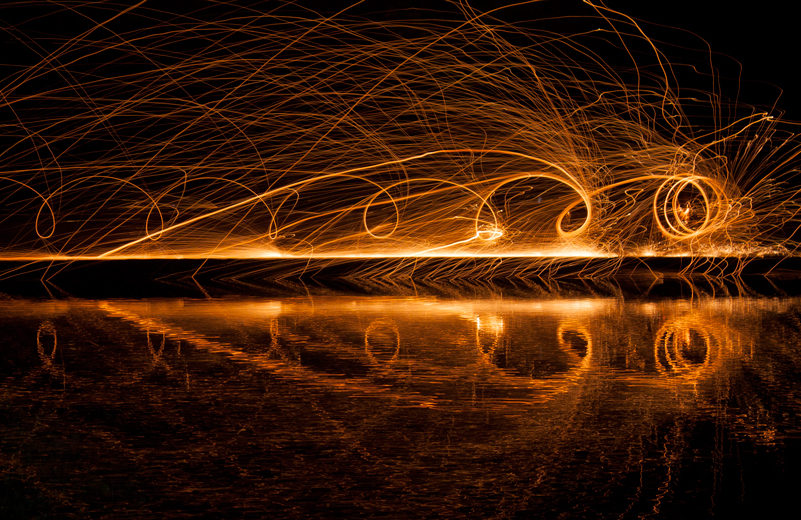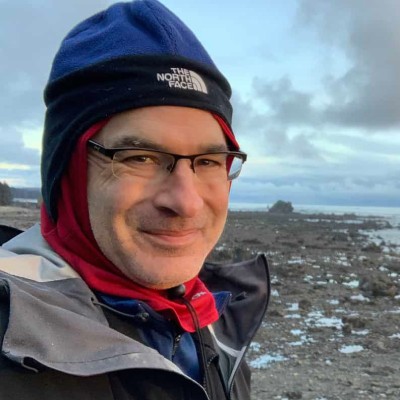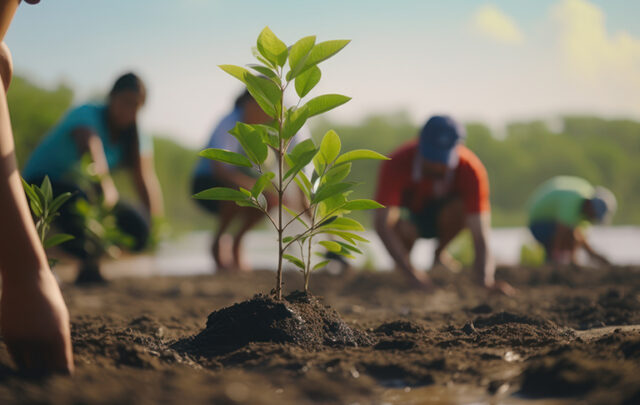This essay is part of our July 2019 Uncertain Future Forum on the topic: “If collapse is imminent, how do we respond?” The first week featured our contributors’ responses to the topic; this second week features their reactions to—and inspirations sparked by—each other’s essays. We invite you to comment below, and to read the other essays here.

Dahr Jamail
During a recent retreat into the mountains for respite from the madness of the industrialized world, I returned to my tent. I was high up in the Olympic Mountains of Washington State, where I live.
After a long day of hiking and climbing, I strode barefoot across cool green grasses to drape my sweaty clothing and gear on nearby rocks in the late afternoon sun to dry. The meadow where I camped was painted red, yellow, white, purple, and blue with alpine wildflowers. Birdsong filled the wooded valley, while a gentle cool breeze wafted through. A stream of snowmelt water cascaded nearby. A thick layer of clouds blanked the upper elevations. An occasional window in them revealed craggy spires above…beckoning me to visit them in the future. Then the window closed, and all the trees within the clouds soaked in the cool moisture within them.
Insects buzzed about constantly.
I feel deep gratitude for this still-functioning alpine ecosystem. When I sleep up there my dreams alight. Everything tastes better, even freeze-dried backpacker meals. The mountain water cools my throat.
I give thanks over, and over, and over again up there, for all of that, especially for the smallest of flowers.
I do most of my climbing trips alone nowadays. It makes it that much easier for me to listen. To Her. To Earth.
Someone asked me if I got bored, spending days on end alone up in the high country. I laughed. How could I possibly be bored? She has so very, very much to say. I hear so much up there. She is always saying so much. All we need to do is listen.
And these days, I cannot seem to listen to Her enough.
Since I was a child I’ve always been drawn into the mountains. I’ve spent most of my adult life living geographically oriented near mountains to accommodate that, but I never knew the deeper reason for this until an elder of Cherokee descent shared a story with me about a mountain spirit.
In the conclusion of my latest book I discuss Iss/Aw’te writer and storyteller Dr. Darryl Wilson. Wilson was born into the Achumawi and Atusgewi Native American tribes (often called the Pit River Nation) of northeastern California, and tells of Mis Misa, a small but powerful spirit that inhabits Akoo-Yet (Mount Shasta), located at the southern end of the Cascade Range in north-central California.* Mis Misa is a spirit force that balances the Earth with the universe, and the universe with the Earth. Wilson says that Akoo-Yet is “the most necessary of all of the mountains upon Earth, for Mis Misa keeps the Earth the proper distance from the sun and keeps everything in its proper place when Wonder and Power stir the universe with a giant yet invisible ja-pilo-o (canoe paddle). Mis Misa keeps the Earth from wandering away from the rest of the universe. It maintains the proper seasons and the proper atmosphere for life to flourish as Earth changes seasons on its journey around the sun.”
The mountain, the story tells us, must be worshipped because Mis Misa dwells deep within it. To climb the mountain with a pure heart and with real resolve, and to communicate with “all of the light and all of the darkness of the universe, is to place your spirit in a direct line from the songs of Mis Misa to hataji (the heart) of the universe. While in this posture, the spirit of man/woman is in perfect balance and harmony.” For as long as Mis Misa’s instructions are followed with sincerity, society will be sustained. Its inhabitants will survive for the long term. “The most important of all of the lessons, it is said, is to be so quiet in your being that you constantly hear the soft singing of Mis Misa.”
However, the story also warns that by not listening to Mis Misa’s song the song will fade. Mis Misa will depart, “and the Earth and all of the societies upon Earth will be out of balance, and the life therein vulnerable to extinction.”
My experience has shown than when I’ve listened intently and heard Mis Misa’s song, I’ve been led to do the best work I’ve done for Earth, whether it was going to Iraq to report on the occupation, or creating my recent book about the climate crisis.
We all need to be listening as intently as possible to Mis Misa.
Where do you go to listen to Mis Misa?
When was the last time you went there to listen?
* Darryl Wilson (Iss/Aw’te), “Mis Misa: The Power Within Akoo- Yet That Protects the World,” Social Justice Journal 2 (2013), edited by Stan Rushworth. (Originally published in News From Native California 6:2 (1992).)
Dahr Jamail is a recipient of numerous honors, including the Martha Gellhorn Award for Journalism for his work in Iraq and the Izzy Award for Outstanding Achievement in Independent Media in 2018. Jamail’s work has been published in The Guardian, The Independent, Al Jazeera, Le Monde Diplomatique, and Foreign Policy in Focus, among others. He’s been a frequent guest on BBC, Democracy Now!, and NPR. His newest book, The End of Ice (The New Press), has just been published. He is also the author of Beyond the Green Zone and The Will to Resist. He is a staff reporter for Truthout.






